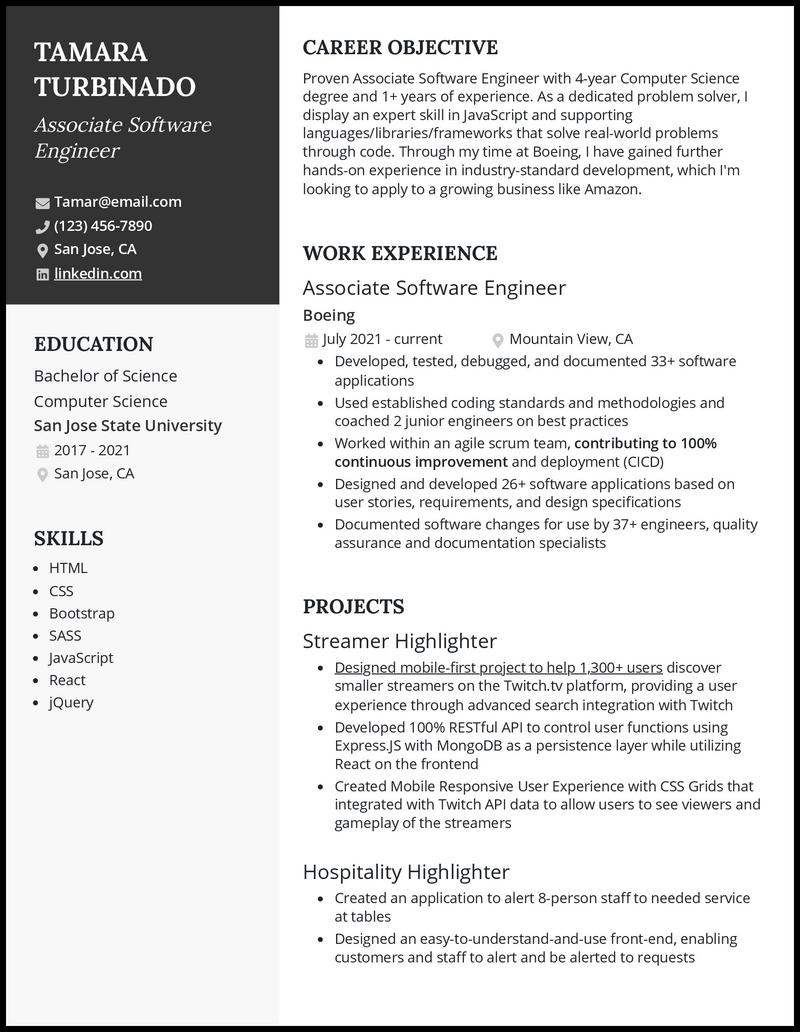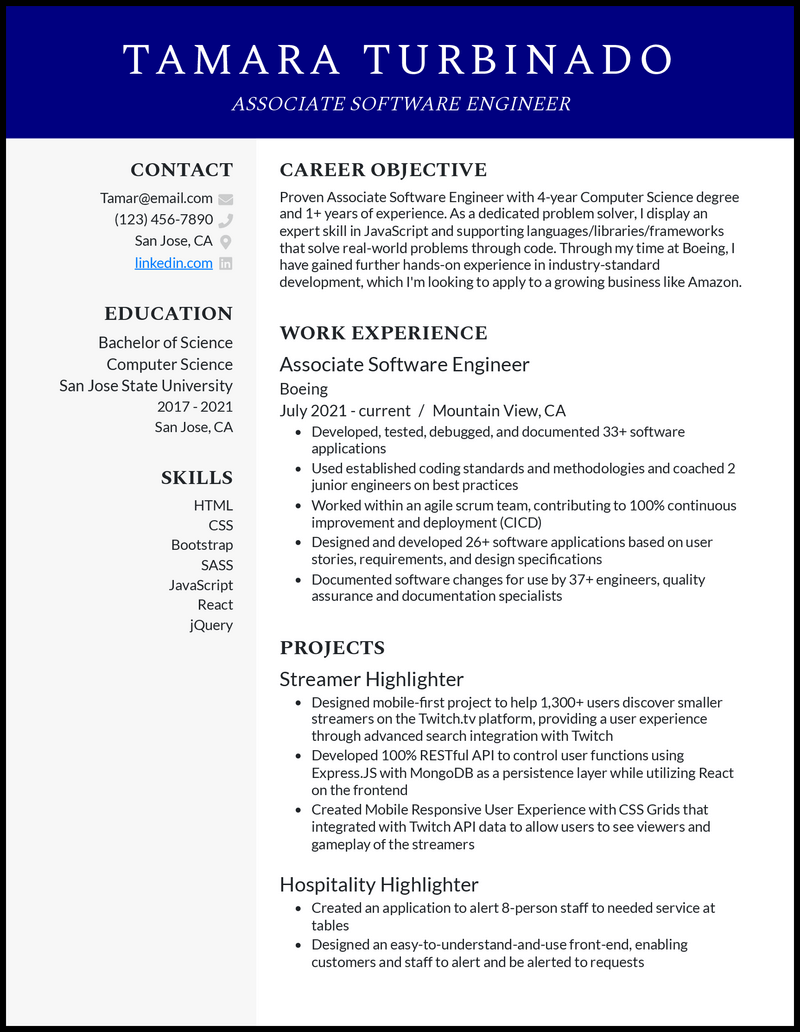Job searching is hard enough as it is, and that’s only compounded when you’re looking for an associate software engineer job.
How do you show your developer skills without much work experience? Which programming languages should you focus on? How do you format your resume?
We’ve helped thousands of developers break into the industry, and these three associate software engineer resume templates are the result of what we’ve learned.
What Really Matters: Your Experience & Skills
To land an associate software engineer role you have to show you can code. You do this through your skills and your work experience.
Your skills are the first thing the recruiter looks at. They want to make sure you check the requirement boxes before continuing to review your resume.
So, try to include any technical skills mentioned in the job description in your resume. Here are some examples:
9 Top Associate Software Engineer Skills
- JavaScript (React)
- C++
- Git (Github)
- Linux
- Python
- SQL (MySQL)
- AWS
- CSS
- HTML
Sample Associate Software Engineer Work Experience Bullet Points
Remember the goal of your work experience: to convince the recruiter you know how to code real things.
These can be anything. Did you work on a project in class? Did you build your own web app to track your favorite soccer team? Build a site for your grandma’s cookies?
Showing that you can deliver an end-to-end product, no matter your specialty, increases your chances of getting an interview.
Here are a few samples:
- Designed mobile-first project to help 1,300+ users discover smaller streamers on the Twitch.tv platform, providing a user experience through advanced search integration with Twitch
- Built a personal web-app with a Django back-end and Angular front-end to track my favorite soccer team (go Red Bulls) and steadily improved page speed by 27% over time.
- Created Mobile Responsive User Experience with CSS Grids that integrated with Twitch API data to allow users to see viewers and gameplay of the streamers
- Built a web scraper to track and analyze secondary market prices for sneakers and stored data in a MySQL database.
Top 5 Tips for Your Associate Software Engineer Resume
- Concentrate on your strongest skills
- Including too many skills comes across as “jack of all trades, master of none.” It’s better for you to be more advanced in a few frameworks/libraries than be a low-level generalist in a bunch of things.
- Anything can be a project
- Don’t be precious about your coding projects. How did you learn to code in the first place? You had to write code at some point. Just talk about what you did, what your goal was, and the tools/languages you used.
- Include links to your Github if you have them
- Including a link to your Github can drastically increase your chances of getting an interview (especially at the right kind of company). There is no better way to show you can code than by actually showing your code!
- Customize for each job description
- Annoying? Yes. Worth it? Also yes. Just read the job description, if you have any of the skills they’re looking for, then add them to your resume. If you’re feeling ambitious, also add any projects that come to mind as you read it.
- Use numbers to demonstrate your impact
- Showing that you focus on measurable impact will help you stand out against other associate developers. Even if these are estimates, if there was some heuristic you were trying to improve during a project, talk about it.
Frequently Asked Questions
- Where should I include my certifications or education?
- Since you’re looking for associate software engineer roles, you might not have a ton of experience yet. That means your certifications and/or education should be focal points and broken out into their own sections.
- What’s the best format to use?
- Any format can work (as long as it doesn’t have five-plus colors, of course) as long as it is pleasant to read. Remember, humans are on the other end of these. The easier you make their job, the higher your chances of landing an interview.
- Do I include a career objective?
- In 95 percent of cases, no. Only include one if you’re going to customize it for each role you apply to (a fun little trick that works: include the company name). Really, though, instead of wasting space on your resume, spill the extra details about your success and results when you write a cover letter.








